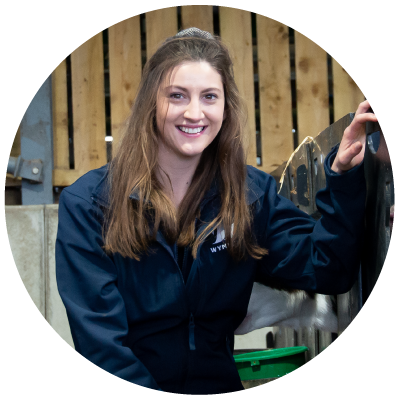Pneumonia is a common major issue, which is estimated to cost the UK cattle industry over £50 million each year. Early identification, treatment and prevention protocols are essential for the animal’s growth performance and of course your pocket! Pneumonia causes inflammation and damage to the lungs and airways. The long-term effects can be detrimental, such as lower DLWG, poorer feed efficiency, longer time to finish, increased age of first calving and lower milk yields.
Causes of Pneumonia in calves
- Low environmental temperature
- High humidity
- Dirty, wet environment
- Poor ventilation
- Direct draughts
- High stress periods – i.e mixing groups/ages/de-horning
- Sick/immunosuppressed calves
- Sharing airspace with older calves/mature cattle
Identifying the key clinical signs early
Identifying the early stages of pneumonia can be difficult. An increased temperature is usually the first key sign, and typically is present 12-72 hours before clinical signs. Other signs include:
- Calf appearing dull, depressed, and lethargic
- High temperature (> 39.5oC)
- Rapid, heavy breathing
- Nasal Discharge
- Coughing
- Reduced feed intakes
Early detection is key
Understanding when your calves are at the greatest risk of pneumonia, as well as the key clinical signs, can significantly help with early detection. Early Detection has a significant impact on the calf health, survival, and economics, such as:
- Improved and quicker response to treatment
- Reduced lung damage
- Reduced need for retreatment
- Reduced pathogen spread
- Reduced long term health and performance implication












